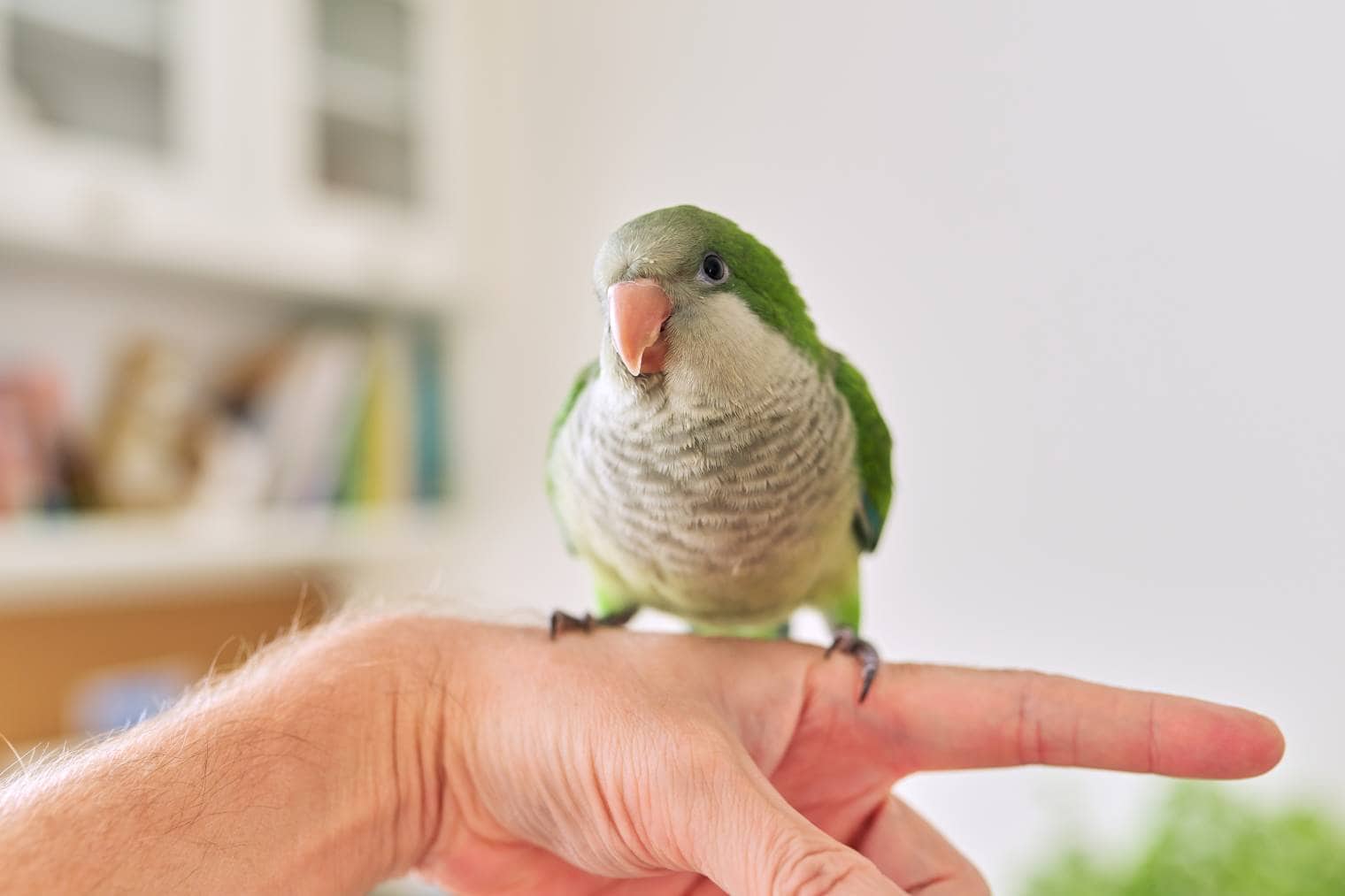How Often Do Parrots Poop? Vet Reviewed Facts & FAQs

By Misty Layne
Updated on
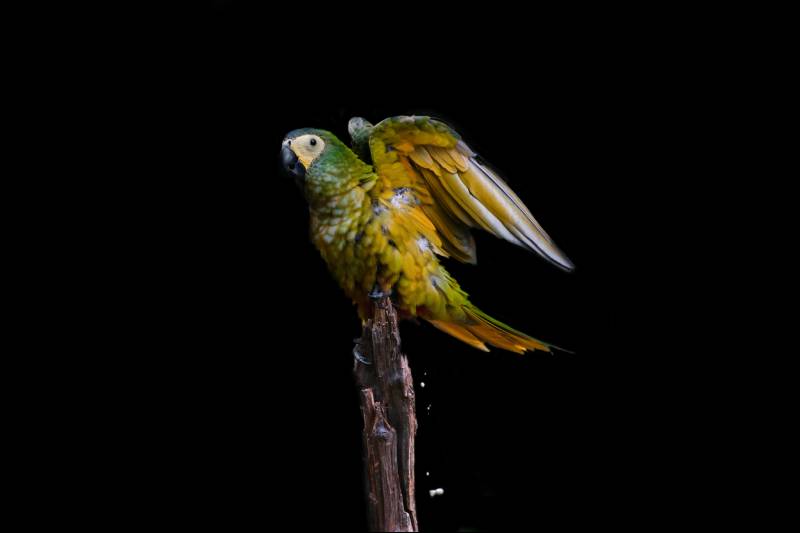
Knowing as much as possible about an animal is important before you bring one home. This will help you take better care of them and keep you from experiencing any surprises. Parrots make unique pets; they might not be as cuddly as a dog or cat, but some can talk, and they tend to have fun personalities. But you should know plenty about these birds if you’re considering adopting one.
One thing in particular you should know before bringing a parrot into your home is their pooping habits. Have you ever considered how often parrots poop? It might not have crossed your mind, but these birds (and most birds) poop a lot—anywhere from 10 to 50 times a day! So, if you get a parrot and notice it pooping all the time, there’s no need to panic because this is normal, but it’s important to learn what your parrot’s normal pooping habits are so you can recognize when things aren’t right.
What else should you know about how often parrots poop? Keep reading to find out!
How Often Do Parrots Poop?
Pooping 10 to 50 times a day might seem excessive. It might also seem like a fairly large range. Why do some parrots poop more than others?
Turns out how often a parrot poops partially depends on their size. Larger birds will poop less often than smaller ones. So, an especially large parrot might only poop once an hour, whereas a much smaller one would poop every 30 minutes or so. Smaller birds have less room for digestive waste because of their size, which makes them go more.

Why Do Parrots Poop So Much?
Why do parrots poop so much? After all, 10 to 50 times a day is a lot!
The main reason is their metabolic rate. Parrots have a high one, especially when flying around, as flying requires a lot of energy. Burning more energy more quickly means that energy needs to be replenished with food. And eating more food equals more pooping. This is especially true as birds have smaller digestive systems and less room for waste.
Parrots will also poop before taking flight. Digestive waste in the body equals more weight, and more weight makes it harder for a bird to fly. Extra weight also means even more energy is being used during flight.
What Is Your Parrot’s Poop Telling You?
Since we’re on the subject, did you know that the state of your parrot’s poop can tell you a lot about their health? This is because a healthy parrot will have poops that are always about the same size and consistency. So, if the poop doesn’t look as it usually does, something could be up with your parrot’s health.
Here’s a look at when the state of your parrot’s poop means it’s time to call the vet.
- Air pockets or bubbles in the poop could indicate gassiness or infection.
- Diarrhea can mean digestive issues, internal parasites, or infection.
- Black or red blood in poop can be a sign of intestinal infection, internal bleeding, or an object that’s been swallowed that shouldn’t have been.
- Poop that is persistently liquidy may be a sign of kidney disease or infection.
- Poop with undigested food in it may mean Proventricular Dilatation Disease, pancreatic issues, or infection.
You can also obtain some information about your parrot’s health and habits by looking at the distribution of their poop. A healthy parrot will usually have poops scattered over a wide area during the day, and in a single area overnight. Poop scattered across the floor overnight indicates that your parrot is unsettled and not sleeping, whereas a clump of poop during the day indicates that they are not moving about as they should be, and are likely feeling unwell.
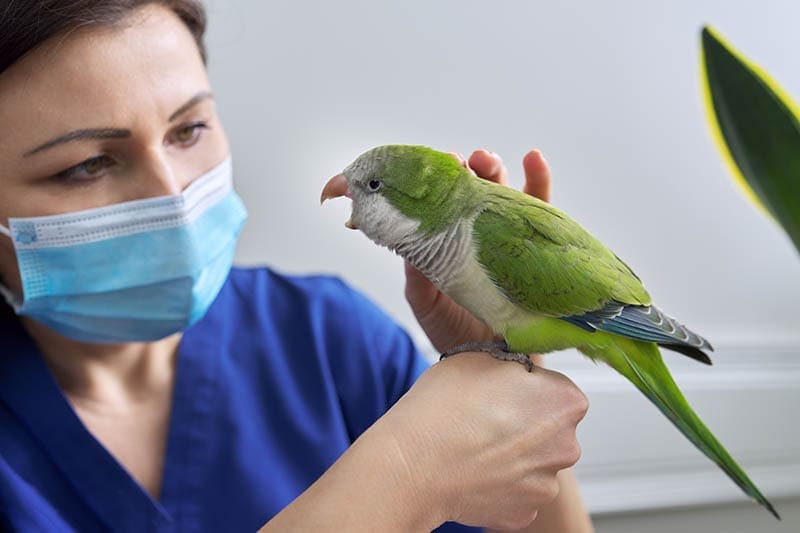
FAQ’s About Parrot Poop
You might have more questions about your parrot’s poop, so here are some of the questions people ask most often.
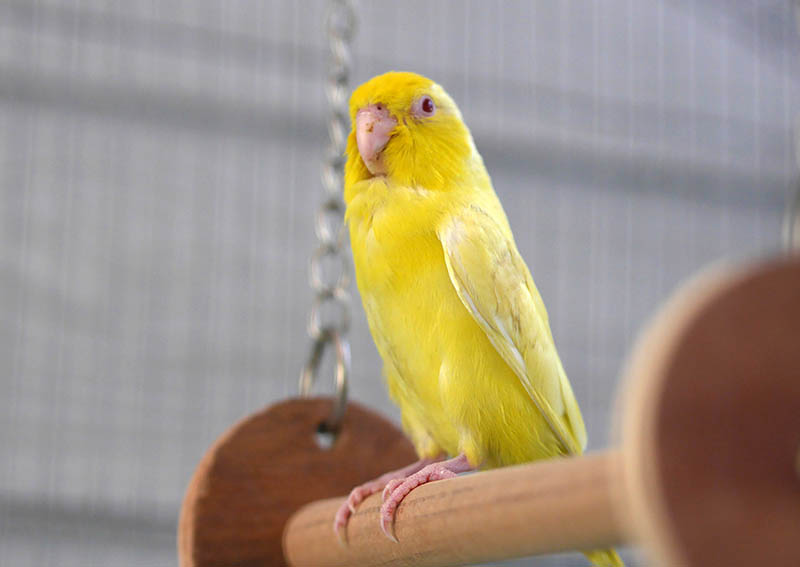
Do parrots pee?
Yes, but they poop and pee at the same time, through a single opening, the cloaca. Each parrot poop consists of brown or greenish fecal material, usually surrounded by a thick white paste made from uric acid, which is the urine component. There is also a more watery portion of the urine, but this is often not noticed by owners.
Do parrots poop while sleeping?
They do not! Like humans, parrots will wake up in the night to poop if they need to.
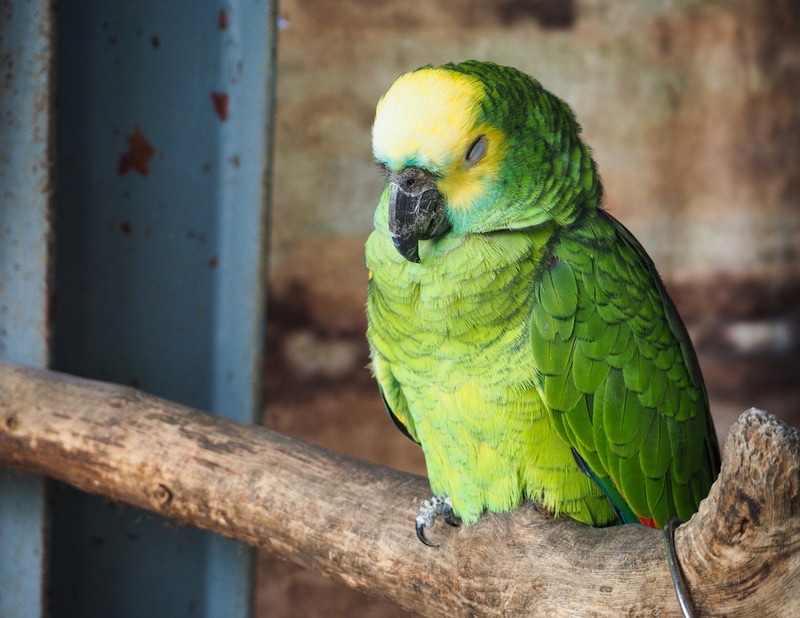
Can you potty train a parrot?
With some hard work, you can! It will definitely take a while, and it may not work with all parrots, but some birds do take to some level of potty training.
Does parrot poop smell bad?
Not usually. Birds don’t eat a lot of meat, which contains sulfites which can make poop smell. Instead, they mostly eat pellets, fruits, veggies, and seeds, so their poop is automatically less smelly. Plus, parrots don’t have a cecum; thus, they don’t have fermentation occurring in the gut, meaning no odors or gas are produced.

Conclusion
If you see your parrot pooping dozens of times each day, it’s completely normal. Parrots, and birds in general, poop 10 to 50 times a day. You should keep an eye on all that poop, too, because how it looks can tell you much about your parrot’s health! Be sure to keep on top of your parrot’s cleaning, not only because hygiene is important, but getting a daily picture of what their poop looks like can be a useful window into what’s going on inside.
Featured Image Credit: Lubomir_photo, Shutterstock





